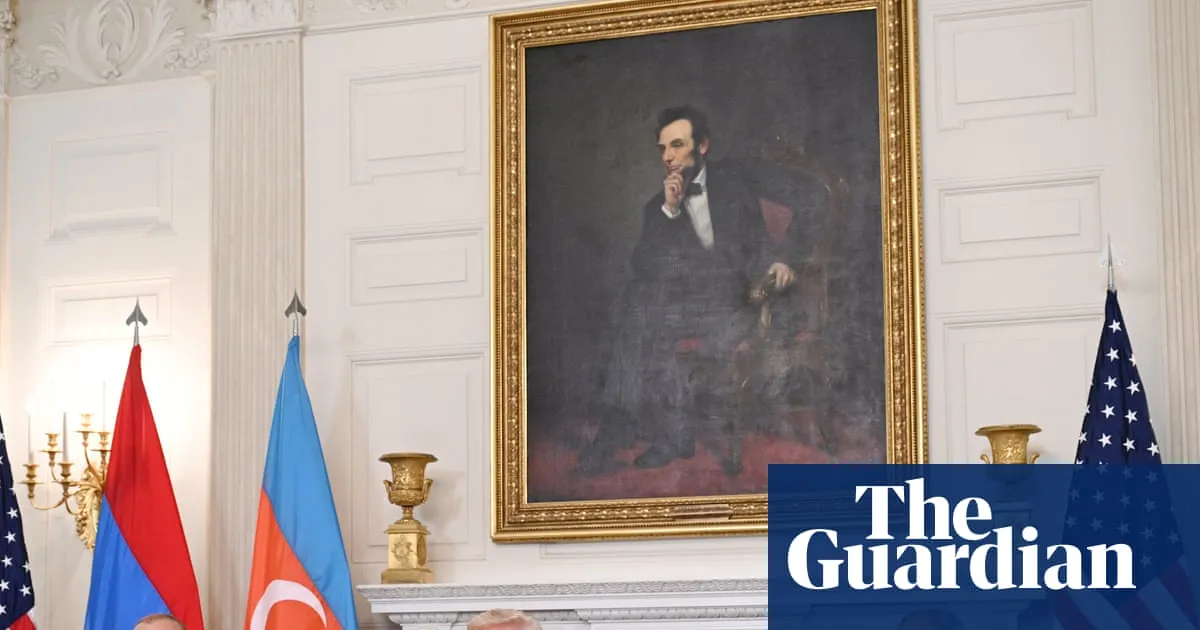
On Saturday, Iran expressed significant concerns regarding foreign interference in a recent peace deal brokered by Donald Trump between Azerbaijan and Armenia. This declaration marks a pivotal moment as the two nations have moved closer to resolving a longstanding conflict that has persisted for 35 years. The peace treaty, signed in Washington, includes an agreement for a private US consortium to manage a strategic corridor along Iran’s border, which has raised alarms in Tehran.
The newly established corridor, which traverses southern Armenia, will link Azerbaijan with its exclave, Nakhchivan. This connection has been a long-standing demand from Baku. Under the terms of the agreement, the US will operate this transit route under Armenian sovereignty for a period of 99 years, significantly altering the balance of power in the region. Some Iranian analysts have labeled this deal as “Iran’s geopolitical suffocation in the region,” indicating fears of diminished influence and security.
The control of this corridor has been a major obstacle to achieving peace between Azerbaijan and Armenia. Historically, the two nations have been embroiled in conflict since the late 1980s when the Nagorno-Karabakh region, primarily populated by ethnic Armenians, broke away from Azerbaijan with the backing of Armenia. In 2023, Azerbaijan, as the superior military power, regained full control of the region through force, leading to the exodus of nearly all of its 120,000 ethnic Armenians to Armenia.
In an unusual twist, the agreement includes the establishment of a yet-to-be-formed US consortium that will manage a 20-mile-long transit corridor, dubbed the “Trump Route for International Peace and Prosperity.” This initiative, which was initially discussed during the Biden administration, raises concerns about a direct US presence near the Iranian border. Tehran fears this development could jeopardize its access to the Black Sea and Europe via Georgia.
Furthermore, the deal potentially opens Armenia to greater economic integration with Turkey through the Middle Corridor project, a trade route that connects Europe and China while circumventing Russia and Iran. Armenian leaders have recognized the economic advantages of this project for their landlocked nation.
The White House has stated that the new transport corridor aims to “enable unhindered connectivity” between Azerbaijan and Armenia while respecting the sovereignty and territorial integrity of Armenia. This route is expected to encompass roads, railways, oil and gas pipelines, and fiber-optic lines, providing a comprehensive infrastructure framework. A US commercial presence is anticipated to reduce the likelihood of military confrontations between the two nations.
As part of the Washington accord, both sides have agreed to resolve additional border disputes. However, Azerbaijan’s president, Ilham Aliyev, emphasized during press briefings that any final agreement would require amendments to the Armenian constitution to eliminate what he termed “baseless territorial claims” against Azerbaijan. He warned that failure to do so would be viewed as “an act of disrespect” by the US. Armenia is expected to hold a constitutional referendum in 2027, but Aliyev's insistence on this demand could escalate tensions within Armenia.
Despite the potential for internal unrest, Aliyev, along with his ally Turkey, stands to benefit significantly from the agreement. Notably, restrictions on military cooperation between Azerbaijan and the US are likely to be lifted as part of the deal. Aliyev remarked, “We have pre-signed the Peace Agreement, which has been negotiated for a long time, and the fact that it is pre-signed in the capital of the No. 1 superpower, in the world’s No. 1 office, and in the presence of the great president of the USA, means that there should be no doubt that any of the parties will make a step back.” He even suggested that Trump should be considered for the Nobel Peace Prize for his role in facilitating this agreement.